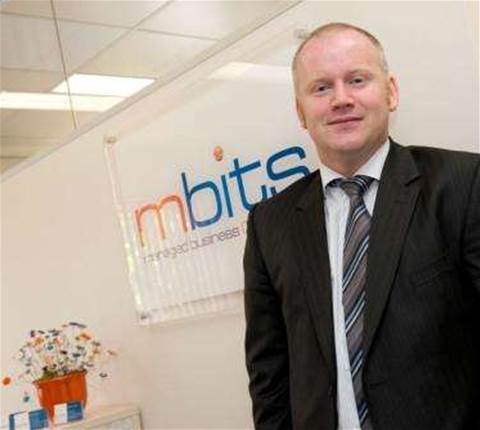As with most CRN Fast50 resellers Mbits is a small business with just eight staff, all highly skilled professionals; it has a clear objective of its target market, in this case small- to mid-sized government agencies in Canberra; it has a solutions focus, from networking to virtual desktop; and it has a passionate businessman driving the business onward.
Mbits is a solutions and ICT managed services company that bills itself as providing highly secure, fully managed "Desktop to Data Centre" IT environments for public sector and corporate customers.
The solutions and services portfolio covers network, such as network security, performance and WAN and application management; infrastructure, including virtual desktop, infrastructure-as-a-service, and field support; cross platform services, such as help desk, data centre hosting, storage, backup and archive; and data management, including databases and applications, and business continuity.
Mbits also provides a software-as-a-service called TenderingBits, which is a secure environment in which government agencies can write tenders for IT service providers.
Eugene Nolan came out from Ireland in 2001 and was sponsored for two years by Ipex, the integrator that was bought by Volante. Initially Nolan worked as a technician on-site for a Canberra-based Ipex customer, the 5000-staff Department of Agriculture, Fisheries and Forestries (DAFF).
These two organisations - the integrator and the government department - would turn out to be crucial in advancing Nolan's career and the success of Mbits.
A year after starting at DAFF Nolan was promoted to team leader for desktops, and then later to agency business manager of Group8, Ipex's managed services division. In control of client engagement from 2003 to 2007, Nolan cut his teeth on how customer service and how it defined the success of a managed services relationship.
During his rise through the ranks Ipex became Volante and then Commander. Nolan's Melburnian wife, Mywanwy, took over sponsorship of his visa.
However, the company changed after the Commander acquisition and "no longer agreed with me as an individual", says Nolan. Where Ipex and Volante had a fairly flat hierarchy, with business managers able to make decisions for customers with a phone call, Commander inserted several more layers of bureaucracy.
The business manager had full client engagement at Volante and Ipex, says Nolan, but the larger owner increased levels for approval from one to five. "Customers get frustrated waiting for weeks for things to get done," says Nolan.
Nolan decided to leave Commander in 2007 and quit six months before it went into receivership. He started work for DAFF as a contractor while he was setting up his own business.
DAFF, like other Canberra agencies, needed to write confidential tenders for IT services without revealing the requirements to the current service provider, which would be expected to bid for the tender itself.
Nolan decided to start up a company that could deliver "a desktop service over the internet" using terminal services. "I was looking at SMEs and how to remove the need for a server in their environment," said Nolan.
He supplied a small team within DAFF with a confidential desktop service that they could use at home or in the office. The flexibility was important because the tenders often had to be drawn up very quickly and often around the clock.
The final product he labelled TenderingBits, which he then sold as a software-as-a-service to other government agencies.
Nolan decided to build his business around small- to mid-size agencies like DAFF because he saw that, unlike the big-name agencies, they rarely received the quality of customer service they wanted.
"There are lots of people selling to the Defences, the Centrelinks. Small to medium agencies get lost in the shuffle. Also they don't get treated like a customer. Most bigger MSPs focus on the bigger agencies; the small agencies get bundled in so they don't get the focus and attention," says Nolan.
He looked to set up a company nearby but couldn't find a suitable base within Canberra. The company instead operates from the NSW border town of Queanbeyan.
Then Mbits landed a contract that doubled business overnight. The reseller won a tender to provide complete IT services for the Department of Indigenous Business Australia, a 280-seat organisation.
Nolan was in the middle of financing a business loan for data-centre hardware and had written a 50-page business plan outlining Mbits' intentions. The 280-seat deal won the bank over instantly.
Nolan admits Mbits is "not everyone's cup of tea". Right now the company would not take on a big tier-one agency as Mbits hasn't got the resources to support those clients. Nolan has set himself a limit of 1000 seats, a band he says is very comfortable. "Never say never, but in the foreseeable future it will be built on small to mid-sized agencies," says Nolan.
When approaching agencies, Nolan decides whether Mbits would want to provide full services. If the agency is too large, Nolan pitches his TenderingBits service.
"We make a business decision to make sure there are no ethical issues. We don't bid for tenders while providing independent IT services" through TenderingBits, says Nolan.




.jpg&h=142&w=230&c=1&s=1)


_(21).jpg&h=142&w=230&c=1&s=1)
.png&h=142&w=230&c=1&s=1)




.jpg&w=100&c=1&s=0)











